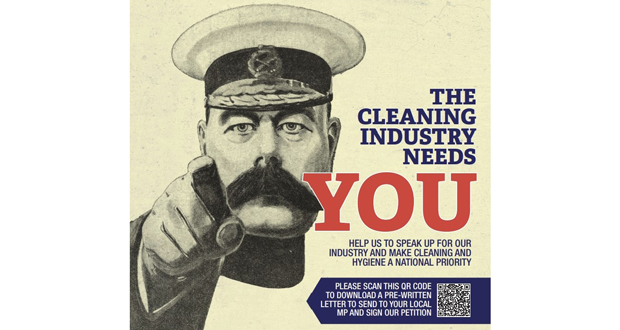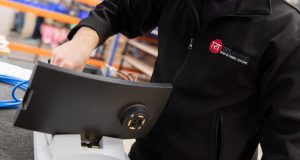The British Cleaning Council (BCC) has thanked the more than 150 industry members who have backed its lobbying campaign and is now calling on more colleagues to lend their support. Early results are that three MPs have been engaged, along with the Conservative policy unit.
The British Cleaning Council and 22 associations from across the cleaning, hygiene and waste industry announced a campaign in February asking sector staff to help lobby MPs and sign a petition to make cleaning and hygiene a national priority.
The aim is for the Government to accept in full the 11 recommendations in the report by the All-Party Parliamentary Group (APPG) for the Cleaning and Hygiene Industry, entitled Embedding Effective Hygiene for a Resilient UK.
The report aims to ensure that the UK learns the lessons of the Covid-19 pandemic by putting cleaning and hygiene at the heart of the national agenda in the future.
Industry colleagues are being asked to download a pre-written letter from the BCC website and email it to their local MP along with the report, and also to sign a petition, both calling on the Government to accept the APPG’s recommendations.
BCC Chairman Jim Melvin urged delegates at the recent London Cleaning Show to get behind the campaign during his conference address on the morning of the first day, as did BCC Deputy Chair Delia Cannings when she spoke at the event on day two.
Throughout the event, colleagues on the BCC stand at the Cleaning Show were handing out information leaflets. The campaign has been symbolised by an image of the famous World War 1 recruiting poster featuring Lord Kitchener, reworked say ‘The Cleaning Industry Needs You’, on the BCC stand.
As part of the campaign, Jim Melvin recently met his local MP, The Rt Hon Grant Shapps, to brief him about the issue. At least two other MPs have responded to industry colleagues.
APPG Chair Nigel Mills, Jim Melvin and BCC Company Secretary Simon Hollingbery also met with Ben Everitt MP, Chair of the APPG on Business Resilience, as part of a drive to contact other APPGs about the report.
Also on the agenda is an approach to the Migration Advisory Committee, which advises on which jobs should go onto the Shortage Occupation List.
BCC Chair Jim Melvin said: “The campaign has got off to a good start. We feel with some justification that we are beginning to see some traction with the political establishment but we still have much further to go.
“I want to sincerely thank the over 150 colleagues who have contacted their local MP in support of the campaign so far, it is very much appreciated.
“But our industry employs 1.4 million people, so there are many more colleagues who can get behind the campaign.
“If you haven’t taken part so far, I’d like to ask: ‘We clean, but how much do we care about our industry and can you please assist?
“We need your help if the voice of our sector is to be heard by MPs and Government. It is easy to get involved and will only take a few minutes of your time, so please show you care and take part.”
The BCC has circulated a QR code (see below) which people can scan or they can visit https://britishcleaningcouncil.org/2023/02/06/download-letter-here to find the letter, APPG report, petition and details of their local MP.
The drive takes place under the umbrella of the BCC’s ‘We Clean, We Care campaign’, which reflects the pride cleaning staff have in the vital, frontline role they perform, keeping others safe, well and healthy.
The Embedding Effective Hygiene for a Resilient UK report aims to recognise the vital frontline role of the cleaning and hygiene sector and staff, make the UK much more resilient to current common infections such as flu and also better prepared for future public health emergencies like the Covid-19 pandemic.
It made 11 key recommendations, summarised below:
- The establishment of a joint Government-industry preparedness team to plan for public health emergencies.
- Minimum levels of cleaning materials and equipment to be agreed and made available in readiness.
- Thought to be given to how to increase production during a public health emergency.
- Key frontline worker status must be bestowed upon cleaning operatives and staff working in supply and manufacturing if a pandemic happens.
- Urgent consideration to be given to making cleaning staff eligible for the Skilled Worker Visa scheme.
- Minimum standards for hygiene infrastructure and cleaning in diverse venues to be agreed.
- A standard qualification for cleaning to be developed within the Apprenticeship Levy.
- Training budgets for cleaning operatives should be adequate.
- Government communications around hygiene in times of pandemic should be clear, consistent, sustained, timely, relevant and specific.
- The Government should use behavioural science-based communication campaigns to promote hygienic behaviour to the public.
- The Government should support the cleaning and hygiene industry in realigning perceptions of the industry.






